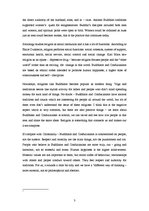-
Buddhism and Confucianism
Buddhism is a family of beliefs and practices, considered by many to be a religion. Various sources put the number of Buddhists in the world between 230 million and 500 million. Most Buddhists live in Asia, but adherents are found worldwide. The Buddha taught that the human tendency is to avoid the difficult truths of life and this in turn leads to suffering. By enabling the mind to be at peace through meditation a human being can confront reality and overcome hatred and craving.
Buddhism is based on the teachings of Siddhartha Gautama, commonly known as "The Buddha" (of our era) , who lived in the north-eastern region of the Indian subcontinent. He probably died around 400 BCE. Buddhists recognize him as an awakened teacher who shared his insights to help sentient beings end their suffering by understanding the true nature of phenomena, thereby escaping the cycle of rebirths with suffering. Among the methods various schools of Buddhism apply towards this goal are: ethical conduct and altruistic behaviour, devotional practices, ceremonies and the invocation of bodhisatvas that help them achieve Nirvana, renunciation of worldly matters, meditation, physical exercises akin to hatha yoga, study and the cultivation of wisdom. The Buddha is not considered a god, and Buddhists do not pray to him or his image for favours. Instead, they meditate on how they can attain peace, love, and compassion within themselves. Buddhism has five major precepts, and Buddhists strive to follow these precepts.
…



